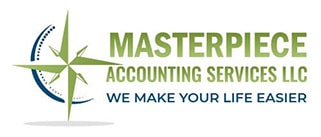Owning a rental property can be a lucrative endeavor, especially when it comes to online platform rentals, such as Airbnb, Booking.com, HomeAway, VRBO, etc. This business model comes with rewards, but also with great level of organization of the income received, and most importantly, of the expenses incurred along the way.
It is very important for the owner of a short-term rental property to keep good records of the money received and the money expensed on the property.
Why is it so important to keep good records?
The expenses incurred while owning a short-term rental will become deductions to be taken at the time the tax return is prepared. The Internal Revenue Service has issued specific guidelines as to the kinds of expenses that are acceptable in the tax return.
Which expenses can be deducted?
Basically, all the expenses incurred to rent the property are deductible. They include advertising, auto and travel expenses, cleaning and maintenance, cleaning, depreciation, insurance, interest (other), legal and other professional fees, listing fees and commissions, local transportation expenses, management fees, mortgage interest paid to banks, points, rental payments, repairs, taxes, travel, utilities, supplies to furnish the home, etc. Also, reservation cancellation fees and other fees, such as pet fees, garage or parking fees, among others.
What if I have to purchase appliances?
Appliances purchased to equip the property and make it functionable for tenants are considered fixed assets, therefore they are subject to depreciation. This means that the cost is taken over time, instead of expensing the cost at the time of purchase.
Under the Tax Cuts and Jobs Act, starting in December 2018, owners can use Section 179 to write off items purchased for use inside rental units—for example, kitchen appliances, carpets, drapes, the cost of fire systems, security systems, roofs, and HVACs.
What happens if I commingle the rental and personal expenses?
Some expenses will be partially deductible if you used the property for personal purposes. Such expenses will be divided between personal and business expenses based on a calculation. You must keep good records to be able to allocate these expenses between your rental and nonrental use. When dividing your expenses, follow these rules: Any day that the unit is rented at a fair rental price is a day of rental use even if you used the unit for personal purposes that day. Any day that the unit is available for rent but not actually rented isn’t a day of rental use.
Will I be able to deduct my vehicle-related expenses?
You can deduct the ordinary and necessary expenses of traveling away from home if the primary purpose of the trip is to collect rental income or to manage, conserve, or maintain your rental property. You must properly allocate your expenses between rental and nonrental activities. If you travel overnight you can deduct expenses such as airfare, accommodations, mileage, meals, and other travel expenses. This could include activities such as:
- Learning related to your rental, such as classes, seminars, conventions, or trade shows
- Meeting with business associates who work with you in your rental business
You can also deduct mileage for travel closer to home in order to visit your property or other related travel, such as going to a store to pick up supplies or equipment.

